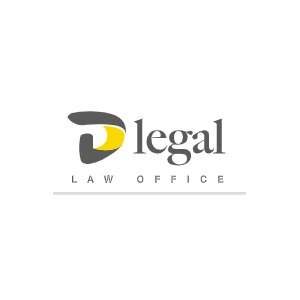Best Tax Increment Financing Lawyers in Canada
Share your needs with us, get contacted by law firms.
Free. Takes 2 min.
Or refine your search by selecting a city:
List of the best lawyers in Canada
About Tax Increment Financing Law in Canada
Tax Increment Financing (TIF) is a financial strategy commonly used in Canada to encourage redevelopment and economic growth in areas that may otherwise be neglected by private investors. Under TIF, municipalities can help finance redevelopment projects by capturing future tax revenues that will be generated from increased property values due to the improvements. While TIF is primarily used in urban development, it is also applied in other areas such as infrastructure provision and community revitalization.
Why You May Need a Lawyer
Engaging with Tax Increment Financing can be complex and may require legal expertise in several situations, such as:
- Negotiating and drafting agreements between developers and municipalities.
- Ensuring compliance with local and provincial regulations and policies concerning TIF.
- Advising on tax implications and financial risks associated with TIF projects.
- Resolving disputes between involved parties, such as developers, municipal governments, or community groups.
- Offering guidance on the environmental impact assessments that are often required as part of a TIF project proposal.
Local Laws Overview
In Canada, TIF laws and practices can vary significantly across provinces and municipalities, reflecting the local governance and economic conditions. Some key aspects include:
- TIF projects must align with local community development plans and goals, which are often outlined in municipal 'Official Plans'.
- Provincial legislation can govern the applications of TIF, such as Ontario’s Municipal Act, which provides the legislative framework for TIF in that province.
- Projects often require comprehensive evaluation and analysis to determine their feasibility and impact on local communities and finances.
- There is generally a requirement for public consultation and transparency to ensure community engagement and support for TIF initiatives.
Frequently Asked Questions
What is the main purpose of Tax Increment Financing?
TIF is used to finance infrastructure improvements and promote economic development in areas that are struggling to attract investment, by using future increases in property taxes to pay for present projects.
Who can initiate a TIF project?
TIF projects are generally initiated by municipal governments, often in collaboration with developers or community organizations.
How are tax increments calculated?
The increment is the difference between the amount of property tax revenue generated before and after the redevelopment. This increase is used to finance the redevelopment project.
Are there risks associated with TIF?
Yes, risks include the possibility that expected tax increments might not be realized, leading to funding shortfalls for the project, and potential opposition from community members due to changes in the area.
Can TIF be used for residential development?
Yes, TIF can be used for residential projects, especially for affordable housing and revitalization of residential neighborhoods.
How long can a TIF district last?
The duration of a TIF district can vary, often lasting up to 20 years, depending on the agreement and jurisdictional policies.
Does TIF affect current property taxes?
TIF does not typically increase current property taxes but reallocates the future tax increment resulting from increased property values.
How is public engagement handled in TIF projects?
Public engagement is crucial and is usually part of the project development process, often including community meetings and consultations to gather feedback and ensure transparency.
Are TIF projects environmentally assessed?
Many TIF projects require environmental assessments to evaluate potential impacts and mitigate negative effects on the environment.
Can businesses benefit directly from TIF?
Yes, businesses can benefit from enhanced infrastructure, increased foot traffic, and improved urban environments that result from TIF-funded projects.
Additional Resources
For additional guidance on Tax Increment Financing in Canada, consider contacting:
- Your municipal government or planning department for local information.
- The Canadian Urban Institute, which studies urban planning and development.
- Provincial ministries responsible for municipal affairs and housing, as they can provide specific regulatory guidance.
- Legal experts and firms specializing in municipal and development law.
Next Steps
If you require legal assistance with TIF, these steps can help guide your process:
- Research and reach out to law firms with expertise in municipal or development law.
- Prepare any relevant documentation and outline your specific questions or concerns about the project.
- Schedule a consultation to discuss your situation and explore potential legal strategies.
- Consider collaborating with stakeholders, such as developers and planners, to ensure a cohesive approach.
- Engage with your local government early to understand regulatory requirements and available support.
Lawzana helps you find the best lawyers and law firms in Canada through a curated and pre-screened list of qualified legal professionals. Our platform offers rankings and detailed profiles of attorneys and law firms, allowing you to compare based on practice areas, including Tax Increment Financing, experience, and client feedback.
Each profile includes a description of the firm's areas of practice, client reviews, team members and partners, year of establishment, spoken languages, office locations, contact information, social media presence, and any published articles or resources. Most firms on our platform speak English and are experienced in both local and international legal matters.
Get a quote from top-rated law firms in Canada — quickly, securely, and without unnecessary hassle.
Disclaimer:
The information provided on this page is for general informational purposes only and does not constitute legal advice. While we strive to ensure the accuracy and relevance of the content, legal information may change over time, and interpretations of the law can vary. You should always consult with a qualified legal professional for advice specific to your situation.
We disclaim all liability for actions taken or not taken based on the content of this page. If you believe any information is incorrect or outdated, please contact us, and we will review and update it where appropriate.
Browse tax increment financing law firms by city in Canada
Refine your search by selecting a city.














